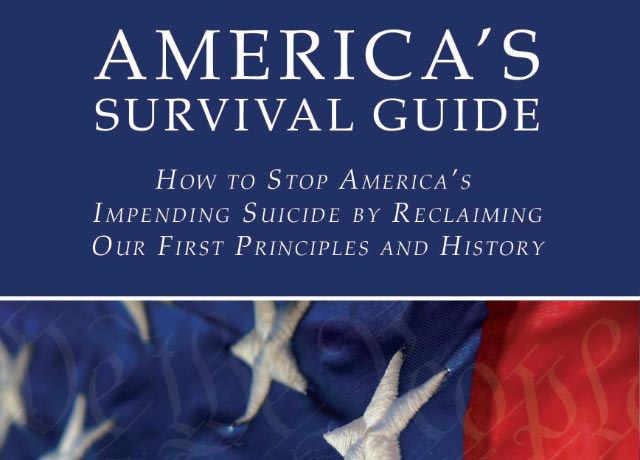George Washington stated, "let there be no change [in Constitutional powers] by usurpation; for though this, in one instance, may be the instrument of good, it is the customary weapon by which free governments are destroyed."
Washington well understood that often the liberties of the people are destroyed not by those trying to do evil, but by those try to do good. In other words, in the hope of achieving a desired policy end, politicians have often skirted the law, ignored precedent and tradition, and otherwise undermined constitutional limitations. When this happens, the law is corrupted, and liberties of the people are no longer safe.
Simply put, the power to do good, is the power to do evil. Once constitutional limitations are shattered in the pursuit of a "good policy", those same limitations become irrelevant to stop "bad" policies. This is a most common path to the subversion and ruin of free peoples. Thus, we must stand firm to protect the Constitution - even in the face of the good.
Monday, March 29, 2010
Thursday, March 25, 2010
Iraq Stands Up for Liberty
Less than two weeks ago, millions of Iraqi citizens stood up for liberty by voting in the parliamentary elections, in the face of militants who attempted to foil freedom by disrupting elections.
Perhaps our citizens at home could take a lesson from those who braved threats and intimidation to vote. Although this year has generated a great deal of heat and controversy, traditionally Americans have been less engaged as is healthy for our republic.
If our celebrity obsessed media would have spent as much time on the Iraqi election as they did Tiger Woods, we would have all benefited. Still, we can take a cue from Iraq and find the determination to be thoughtfully engaged in the political process.
If not, we get the government we deserve.
Perhaps our citizens at home could take a lesson from those who braved threats and intimidation to vote. Although this year has generated a great deal of heat and controversy, traditionally Americans have been less engaged as is healthy for our republic.
If our celebrity obsessed media would have spent as much time on the Iraqi election as they did Tiger Woods, we would have all benefited. Still, we can take a cue from Iraq and find the determination to be thoughtfully engaged in the political process.
If not, we get the government we deserve.
Thursday, March 18, 2010
Remember Limited Government
A fundamental First Principle of our Declaration of Independence, and embedded in our Constitution, is a limited federal government. Having just beaten back British tyranny, and fearful of a centralized, overbearing and uncontrolled government, the Founding Fathers determined to give the federal government specific, enumerated powers in the Constitution.
The idea of limited government is articulated in the Declaration of Independence's explanation that "that to secure these [unalienable rights], governments are instituted among men, deriving their just powers from the consent of the governed." It is specifically confirmed in how the Constitution was drafted - Article I specifically enumerates the powers vested in the federal government. To eliminate any doubt, the 9th and 10th Amendments expressly provide that any powers not specifically granted to the federal government are reserved to the States or the people.
Today, however, the idea of limited government is mostly ignored. There is very little discussion on most issues regarding whether it is appropriate for the federal government to act. Although the health care debate has raised serious concerns about the appropriate scope of the federal government, most policy discussions involving a whole range of issues revolves around how the federal government should address a particular issue.
Thomas Jefferson wrote, "The construction applied ... to those parts of the Constitution of the United States which delegate Congress a power ... ought not to be construed as themselves to give unlimited powers, nor a part to be so taken as to destroy the whole residue of that instrument." His counsel is mostly ignored.
When a proposal for federal intervention is made, the very first question that should be asked is whether it fits within the powers given to the federal government. To ignore that question only guarantees the subversion of our Constitution.
The idea of limited government is articulated in the Declaration of Independence's explanation that "that to secure these [unalienable rights], governments are instituted among men, deriving their just powers from the consent of the governed." It is specifically confirmed in how the Constitution was drafted - Article I specifically enumerates the powers vested in the federal government. To eliminate any doubt, the 9th and 10th Amendments expressly provide that any powers not specifically granted to the federal government are reserved to the States or the people.
Today, however, the idea of limited government is mostly ignored. There is very little discussion on most issues regarding whether it is appropriate for the federal government to act. Although the health care debate has raised serious concerns about the appropriate scope of the federal government, most policy discussions involving a whole range of issues revolves around how the federal government should address a particular issue.
Thomas Jefferson wrote, "The construction applied ... to those parts of the Constitution of the United States which delegate Congress a power ... ought not to be construed as themselves to give unlimited powers, nor a part to be so taken as to destroy the whole residue of that instrument." His counsel is mostly ignored.
When a proposal for federal intervention is made, the very first question that should be asked is whether it fits within the powers given to the federal government. To ignore that question only guarantees the subversion of our Constitution.
Subscribe to:
Posts (Atom)





